An Indian writer and an American photographer spend three months on the road hitch-hiking with truck drivers in India.
During the months leading up to the monsoon, we—an Indian writer and an American photographer—set out on a three-month, cross-country tour of India, hitchhiking with truck drivers. We began our journey from Mumbai, the commercial capital of India. We then made our way north to Srinagar, the capital of conflict-ridden Jammu and Kashmir, and travelled further east to the northeastern town of Imphal, the capital of restive Manipur. From the sand-blasted roads of Rajasthan, the fertile rice and wheat plains of Punjab, the winding green hills of Nagaland, to the sheer cliffs of Kashmir, we were witness to the vast topographical diversity in which truckers ply their moveable trade.
The Indian transportation industry is the second largest source of employment in the country, after agriculture. The industry is unorganized and extremely fragmented, with middlemen playing a dominant price-setting role. More than 70 percent of the industry is made up of small operators who own fewer than five trucks.
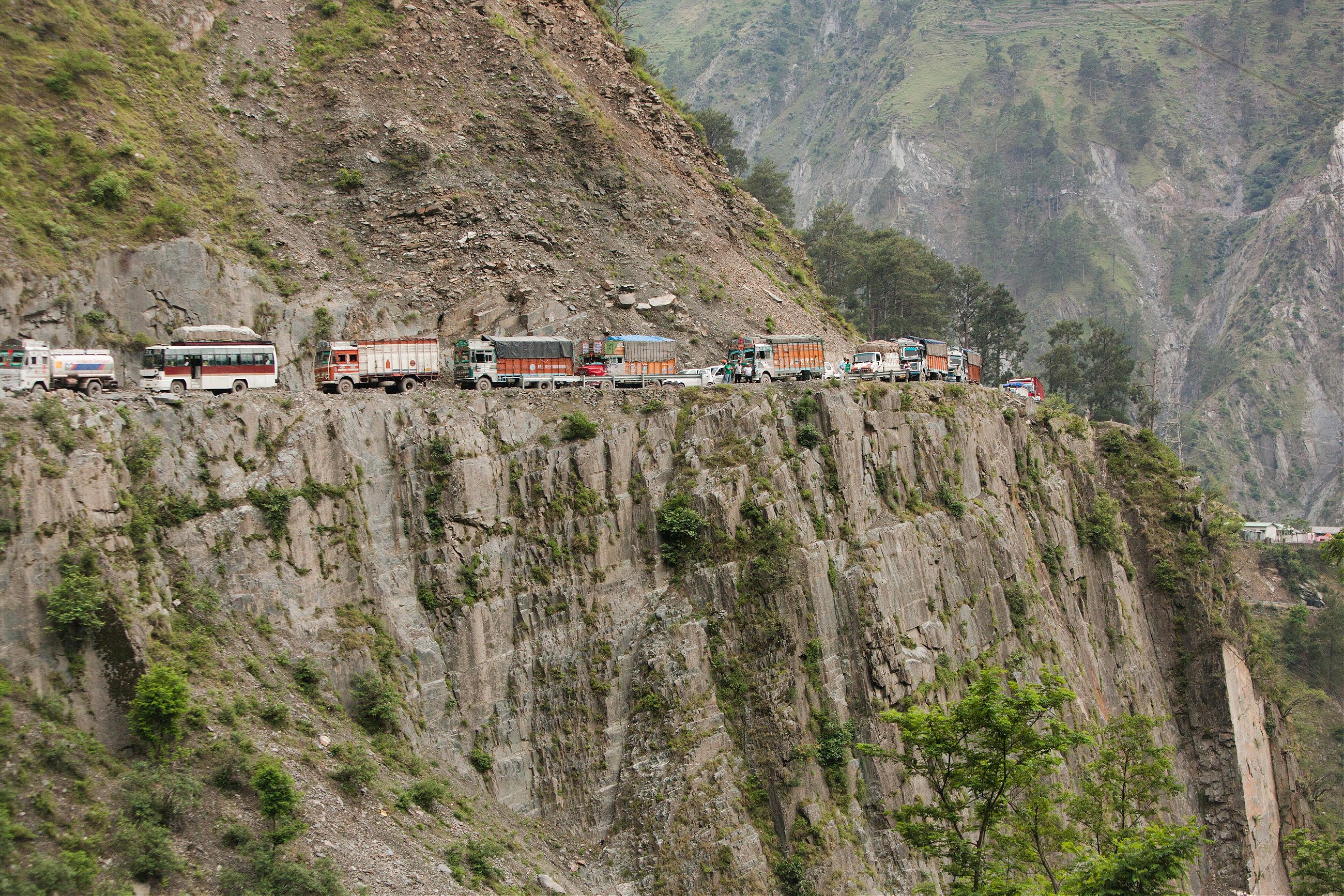
Despite their crucial role in the smooth conduct of the economy, truck drivers are stigmatized by conventional society and popular culture as peripatetic good-for-nothings, rash drivers, hard-drinkers, people who frequent brothels contribute to the spread of AIDS. However, our journey, spent in proximity with truckers, sleeping in their cramped trucks, sharing their food, showed us a more complex reality.
We found ourselves empathizing with their inevitable encounters with police harassment, their narrow misses with the cars zigzagging across the highway in a hurry, and with their struggle against substance abuse, just a few of the issues they face. Their trucks are larger then their role as a carrier of goods and occupy a sentimental spot in the psyche of the average trucker. The truck, for them, is a home away from home, which is why they choose to embellish their vehicles with the kind of ornamental extravagance that is typically above their pay scale. The abundance of truck art is also testimony to an underground army of painters who decorate trucks while paying heed to an unspoken aesthetic convention, one that is often passed across generations.
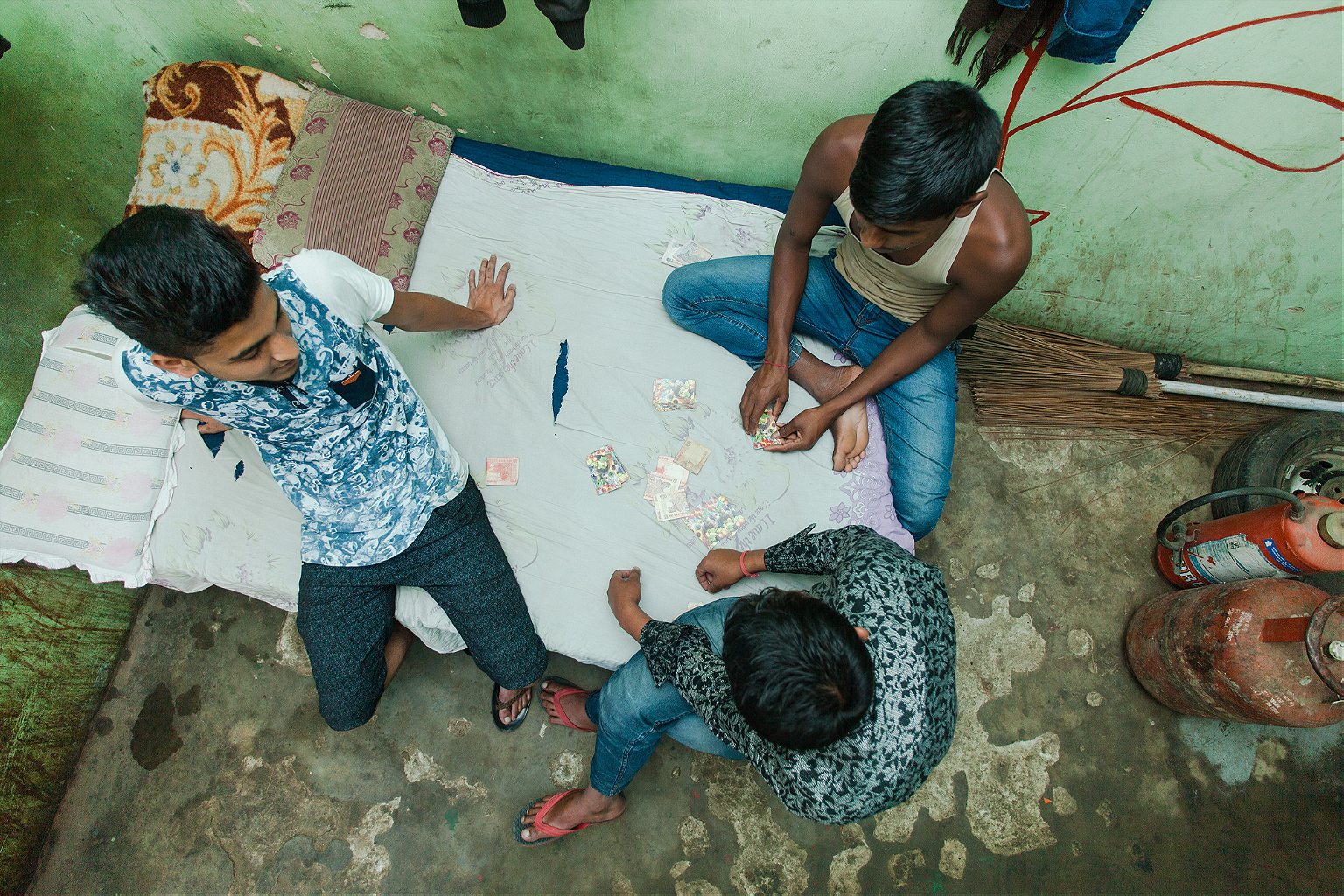
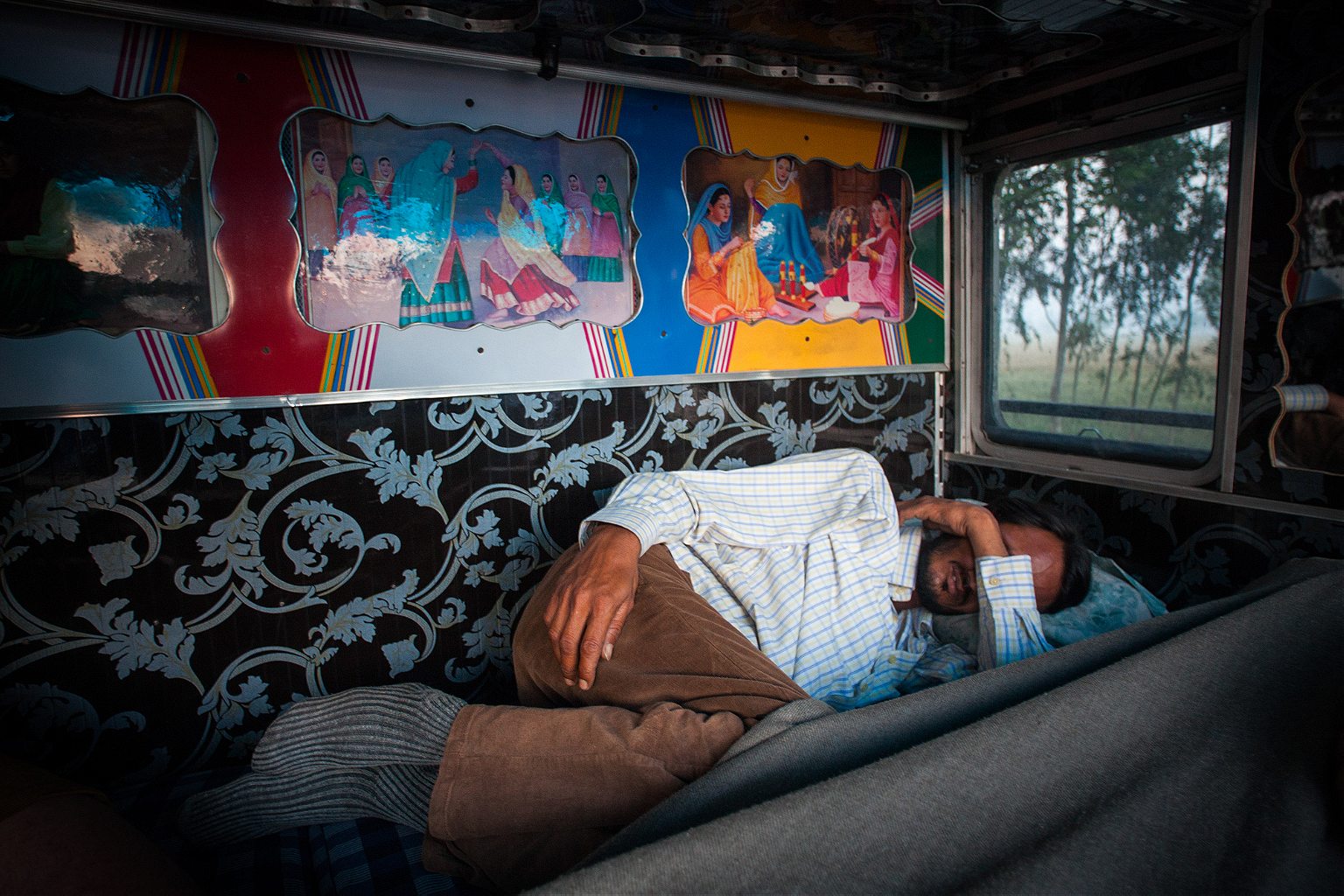
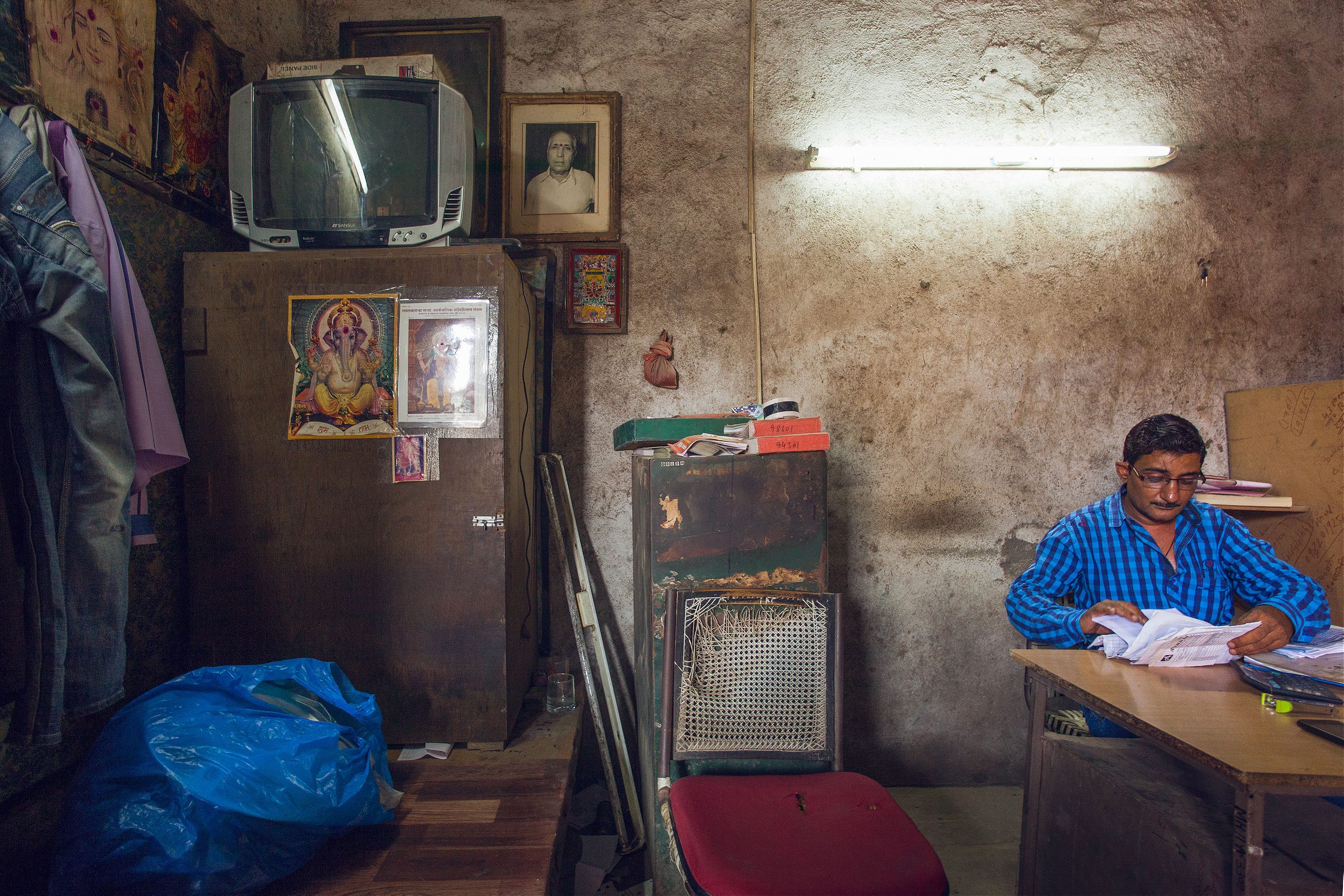
As an occupational group, truckers constitute an organic highway economy that includes dhabas (no-frills eateries adjoining highways), repair shops, brothels, roadside bars, tolls and informal road taxes. The stories they have in store offer sharp insight into the underbelly of the Indian economy: highway robbers operating in parts of the country like Rajasthan and Nagaland; the collusion between transporters, politicians and bureaucrats that’s given the transportation department a reputation for corruption; and the rampant overloading of trucks that’s estimated to cause the deaths of ten people every hour in road accidents. It was in one such overloaded truck in Jaipur, the capital of Rajasthan, that we encountered Avtar Singh and Amarjot Singh.
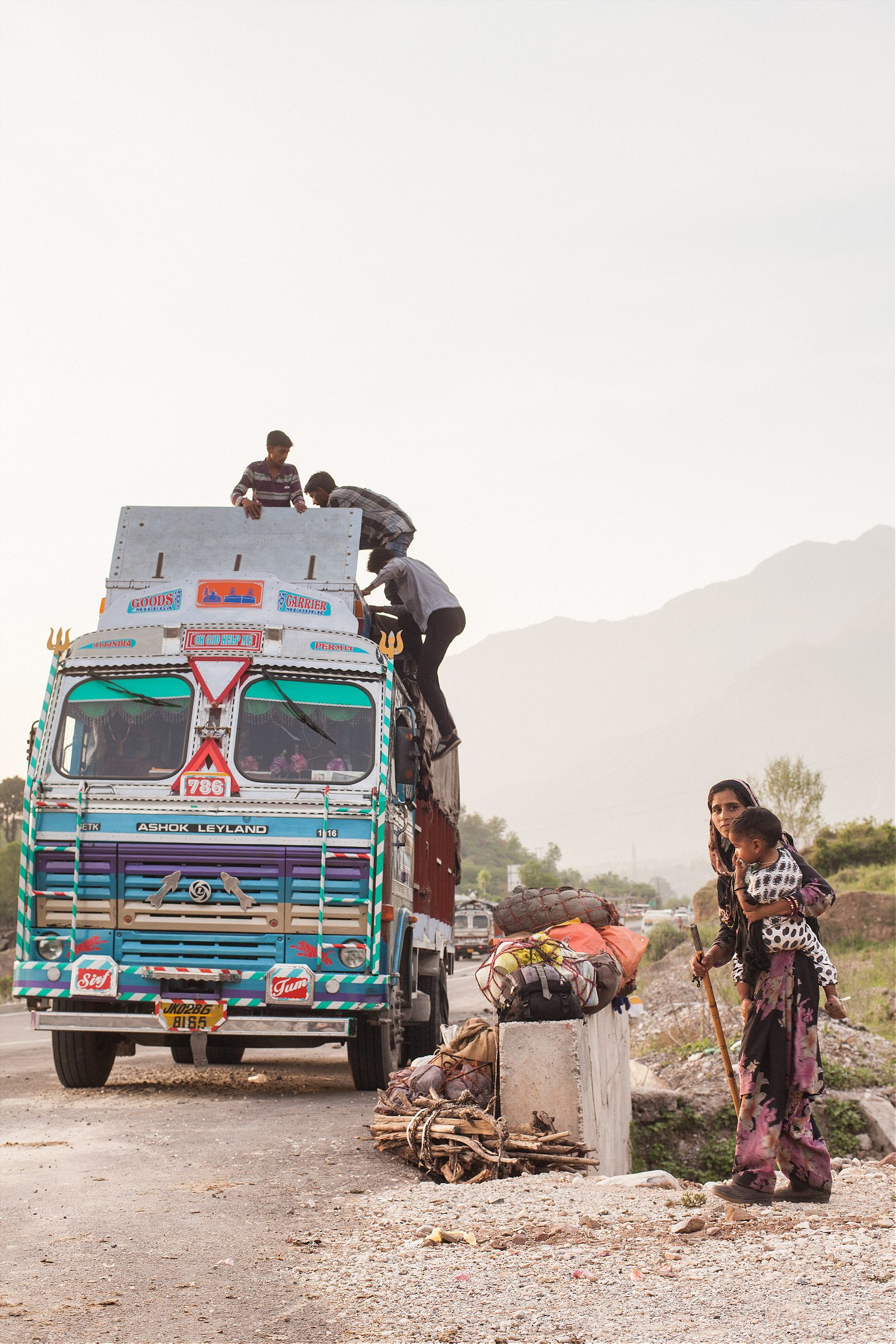
Avtar and Amarjot, whose given names have been changed to protect their identity, are brothers who also double as professional trucking partners, driving together in shifts. Although they grew up in a lower-caste Ramdasia Sikh family in southeast Punjab, neither of them sport the trademark Sikh turban and say they started in this line of work because of a wish to see the world beyond their village. Their father was a low-ranking infantryman in the Indian army, while their mother had a job with the Food Corporation of India (FCI). Their parents died in a car accident when they were barely teenagers, bringing along debilitating financial instability. They had to sell their house to pay for their sister’s dowry, and Avtar had to drop out of school and take up a job as a handyman at a repair shop.
“Sometimes I think that I’d be doing better if I’d studied, but then I see people who have graduated B.A. and M.A. and are still unemployed and I rethink. I think education has been reduced to a degree now, a mere piece of paper,” he says.
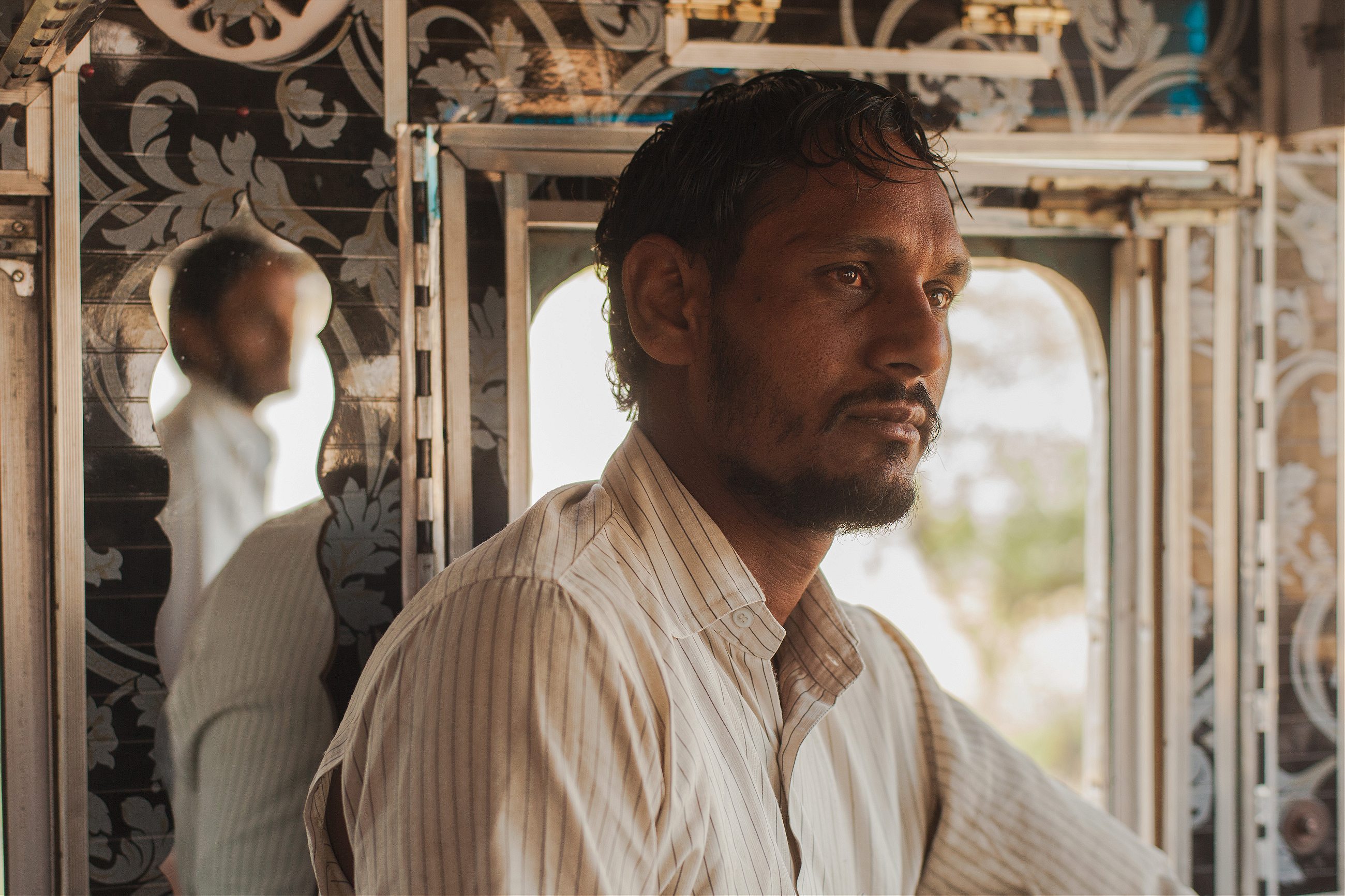
Today they are the proud owners of a Hyundai Accent car. They’ve earned this by driving trucks since 2003. When we found them parked by the side of a road in Jaipur, their truck was severely overloaded, carrying 50 tons of Kota stone, a building material, instead of the designated 21 tons. They were waiting for the Regional Transport Office (RTO) officials ahead to turn the other way so they could escape scrutiny. A resourceful Avtar had an understanding with an RTO driver who let them know when it was safe to go. They also had a system of asking truck drivers on the opposite side of the highway using designated gestures whether any RTO guys were lying in wait.
Their truck is extraordinarily clean, Avtar’s favorite pastimes being meticulously dusting his vehicle and combing his hair. These hobbies compete for his attention with other vices, which include smoking 40 Four Square cigarettes a day, leaning against the steering wheel as he lights them, and scooping bone-dry bhukki (poppy husk) into his mouth every two hours with a gulp of water.
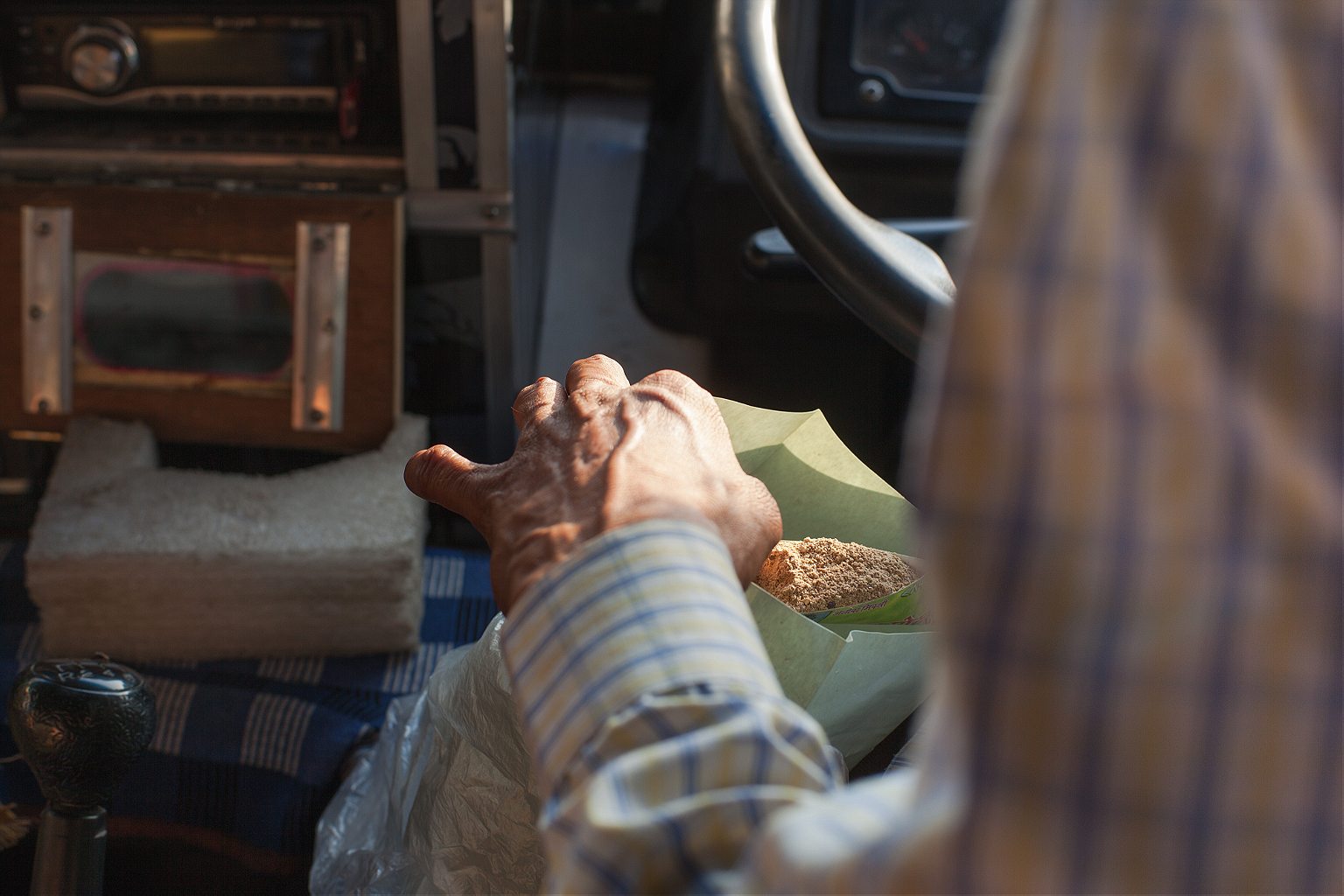
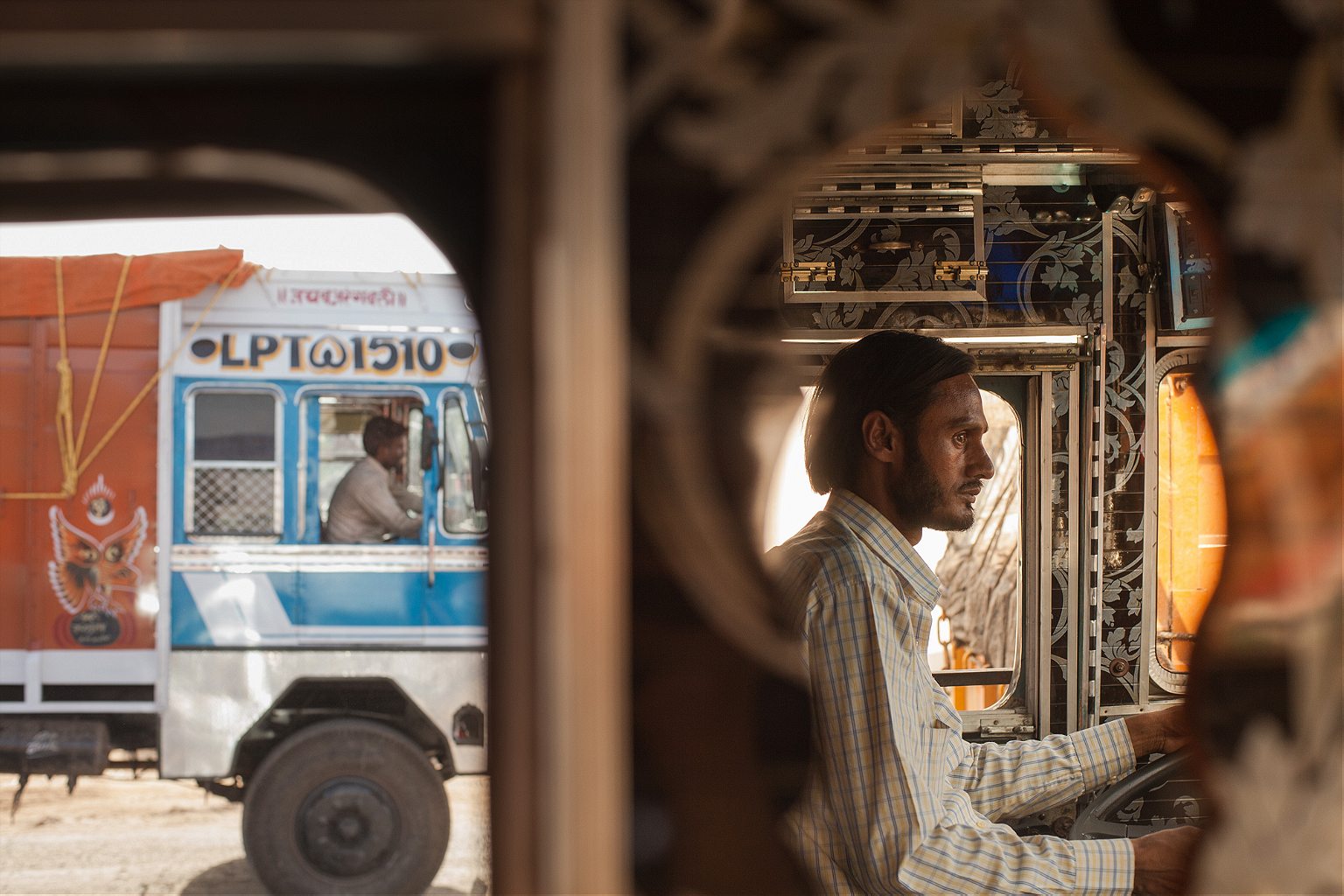
Like many truckers in Punjab, Avtar is an opium addict. He buys the bhukki from a government outlet in Rajasthan that legally sells it for 2,000 rupees a kilogram—about $30 USD. Official figures are unavailable, but the truck drivers we spoke with said more than three-fourths of their compatriots in Punjab were opium addicts. So badly has Avtar surrendered to the vice that he says rehabilitation centers in Punjab won’t do him any good. “I’ll have to go to America to be cured,” he says, his bulging eyes and sunken cheeks evidence of his addiction. He tells us that a driver addicted to bhukki can’t possibly drive without it and that a longer unsupervised withdrawal period can even be fatal. “The eyes start watering, calves hurt, the body feels broken down, you can’t stop vomiting and shitting your pants,” he says. Their truck’s owner knows of Avtar ’s addiction and only assigns him the Rajasthan route, which enables him to buy bhukki supplies at regular intervals, as the drug is legal here.
By contrast, Amarjot looks healthy, and claims his only vices are the odd bottle of whisky and chewing tobacco. They tell us of a younger brother who succumbed to heroin addiction a couple of years ago. “He injected himself to death,” says Amarjot. This is the story of many families in Punjab, which has seen an entire generation decimated by drug abuse.
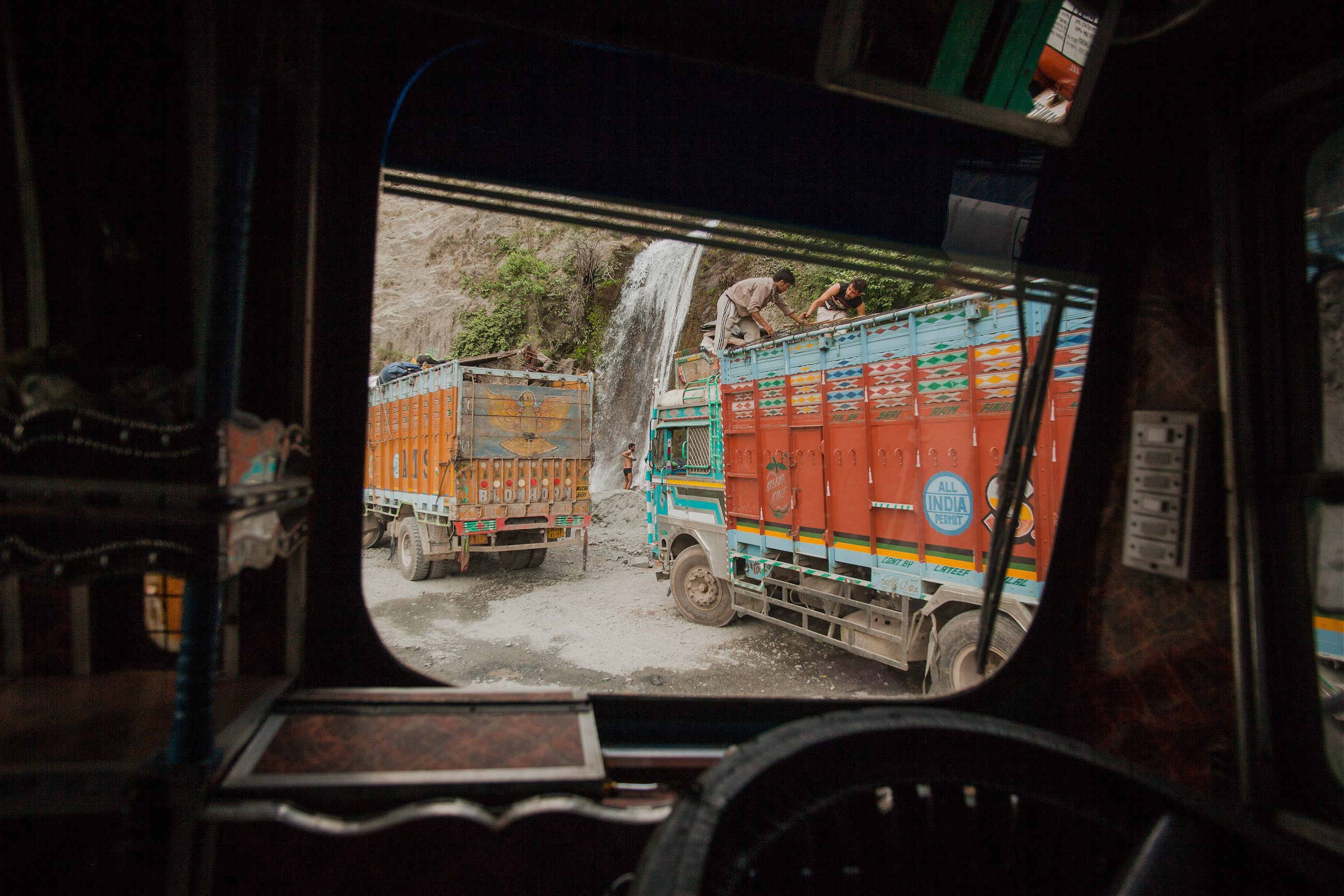
The more educated brother, Amarjot takes care of all accounts and transactions. He is also the more responsible brother, well integrated into conventional society. He is married with a young daughter. Avtar, on the other hand, is a lone wolf. He was married but got divorced because of problems with his addiction. He now carries on a secret affair with a married woman from a neighboring village who visits his rented accommodation when he’s back home from a trip.
The truck owner doesn’t let Avtar carry on with his vice without a quid pro quo. He knows Avtar is an expert at transporting do number ka maal (goods without necessary tax-related papers). He knows all the rural roads in Haryana, a state neighboring Punjab and Rajasthan, which pass through state borders without an accompanying official checkpoint. When on their way from Punjab to Rajasthan, they transport illicit scrap steel through an unpaved road to escape sales tax. But while transporting limestone back to Chandigarh, the capital of Punjab, tax authorities noticed that taxes weren’t being paid and the brothers were not allowed through. Avtar and Amarjot were going to wait till midnight and go to Devigarh to bribe an inspector and get their goods passed through.
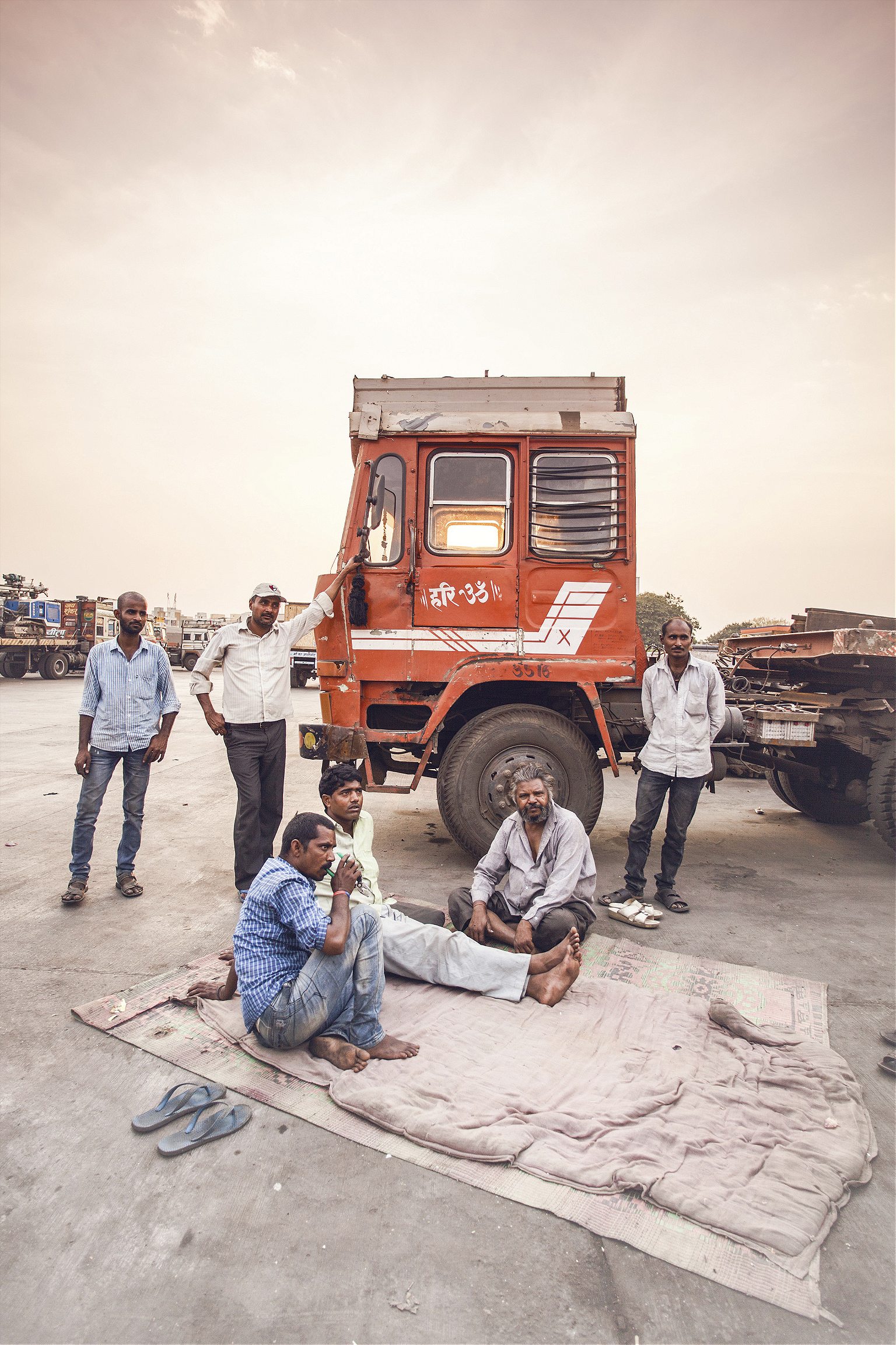
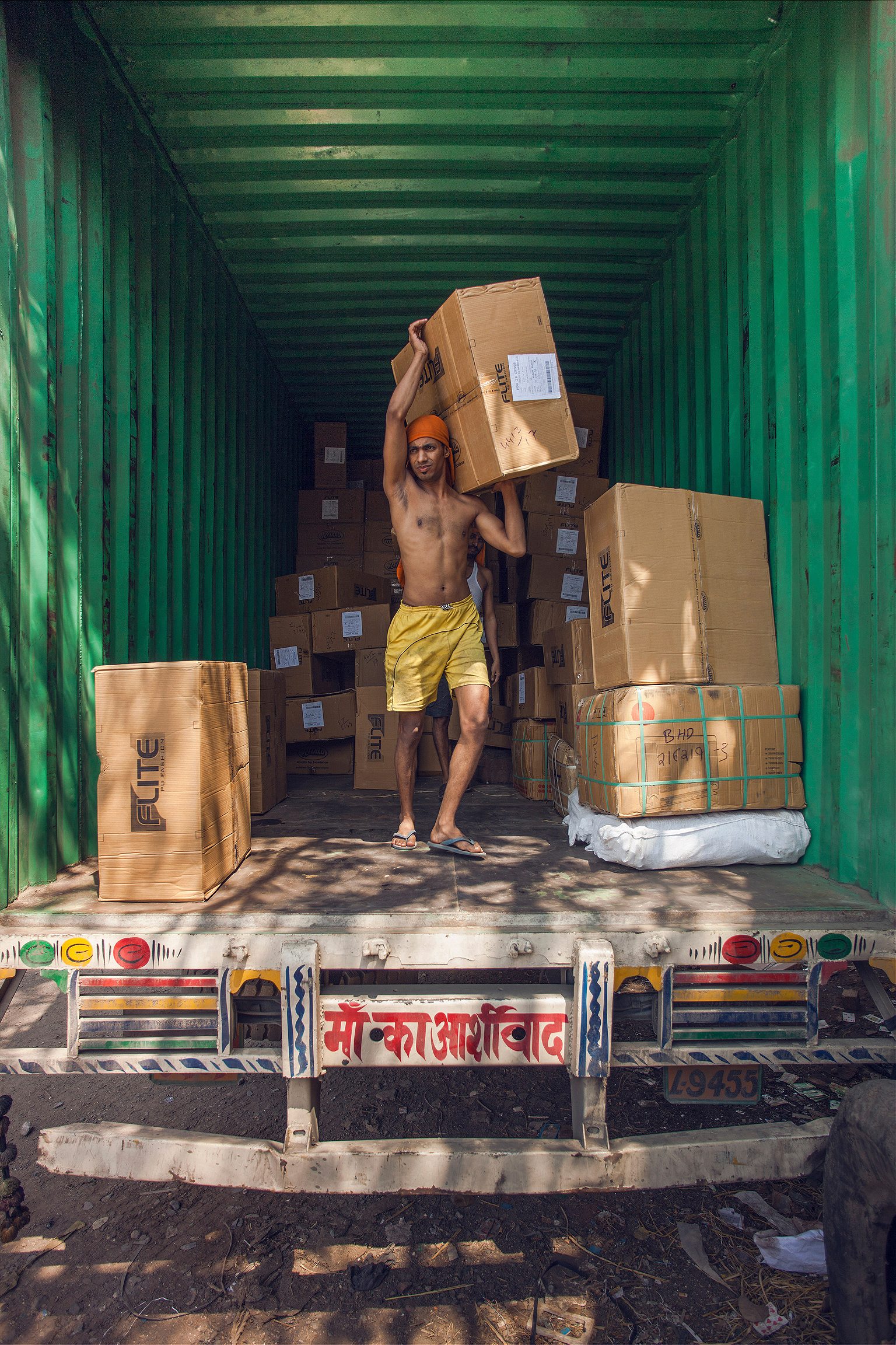
Avtar wakes up early every day, listening to and humming along to 17th-century Sikh devotional songs known as Gurbani. Being a stickler for cleanliness, whenever he comes upon a familiar dhaba, or informal roadside restaurant that sometimes serve as ersatz motels, he asks to have a bath. “One who calls himself a Sikh of the True Guru shall get up early morning and meditate on the Lord’s Name. Make effort regularly to cleanse, bathe and dip in the ambrosial pool.” Habit, honor, and religiosity: Avtar’s life revolves around these quintessentially Punjabi values.
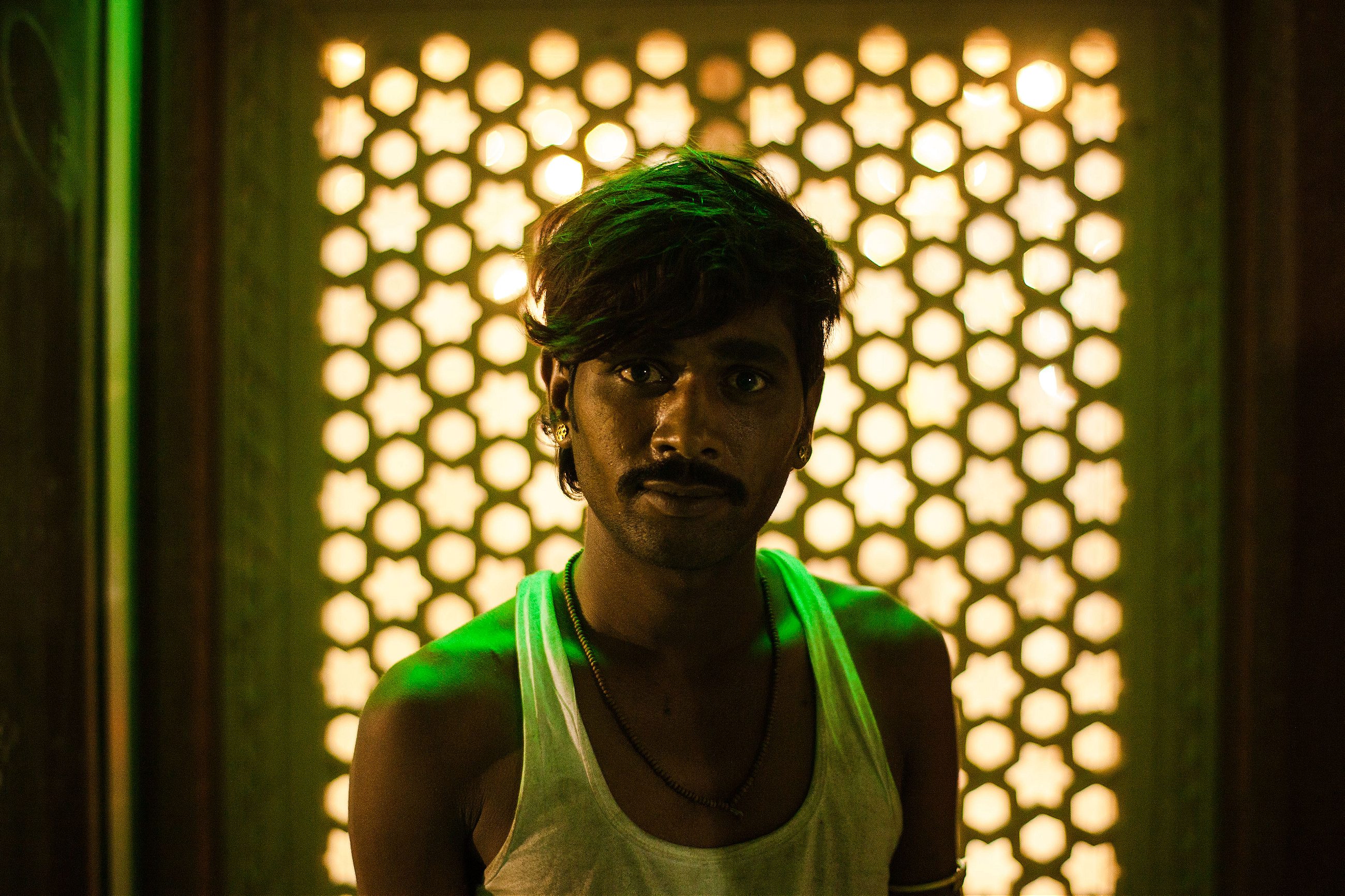
Last we spoke to them, we found out that Amarjot had opted out of the itinerant lifestyle and has started work as a truck-body builder in Sirhind, a major truck decoration center in Punjab, to be closer to his family. Avtar, meanwhile, has roped in a young relative as a khalassi—apprentice—another desperate recruit in an industry that is increasingly finding disfavor even among the unskilled because of the low pay (around $100 per month excluding allowances), punishing schedule, accompanying addictions, and danger.